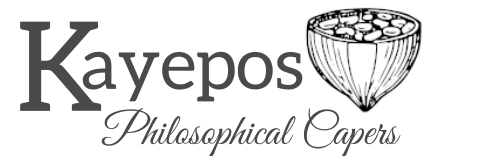
I recently wrote a 1000-word-philosophy article about virtue ethics. In preparing this, I was somewhat surprised to find that people are still very bothered by the issue of explanatory power. Questions of explanatory power crop up everywhere, from intro textbooks to journal articles, from tweets to conversations with random people on the street.
I suppose with a name as cool as explanatory power, popularity is to be expected. I’m imagining a bunch of X-Men (or should it be X-People?) sitting around discussing their powers. “I have laser eyes”, “I have mind control”.
Consequentialism is in there with the cool kids saying, “well, I have X-planatory power. Now listen, you guys could do a lot more good by working as mercenaries and donating your earnings to the world’s most efficient charities.”
Virtue ethics is sadly standing outside in the snow, looking in through the window, their little wool hat decaying in the radiation of the post-apocalyptic world, saying to themselves “I wish I had X-planatory power.”
Don’t worry, virtue ethics! You can come in from the snow. Don’t let that guy with the razor claws bully you about not having X-planatory power. You can actually X-plain a lot. As we are going to see now.
What is Virtue Ethics?

These days, it’s very tricky to say what virtue ethics is, because there are lots of versions. There are agent-centered, motive-centered, neo-Stoic, neo-Humean, neo-Confucian and neon orange varieties. However, the main version is neo-Aristotelian virtue ethics. Neo-Aristotelian virtue ethics says that right actions are just those things that virtuous people do. For example, if virtuous people would give money to those in need, then it’s the right thing to do. If they would not, then it is not.
How useful is this definition? Well, it’s entirely useless when it comes to many cases in popular ethics class-rooms. Take the trolley problem, for example, where a train is running out of control down a track. Three people are tied up on the track. You are standing on a bridge. You’re quite skinny and somehow calculate that you are too light to stop the train. Yep, definitely too light. No doubt about it. Not being self-serving at all. That fat guy over there though… should we push him?
If you are enjoying this post, you might be interested in taking one of our online discussion-based courses. Or you could sign up to our mailing list to receive updates about our latest blog posts and course offerings
Actually, come to think of it, this is rather obnoxiously fat-shaming. Let’s just replace the fat man with a ripped guy. Your dedication to soy protein supplements will be your undoing, ripped guy. Or should we say R.I.P’ed guy?
Would a virtuous person push the ripped guy? I don’t know. We would need a very deep understanding of virtue, and probably more information about the situation, to say whether a virtuous person would push a gym rat off a bridge to stop a train that would otherwise kill three other people. And maybe even then we would only know after actually witnessing such cases a few times – which, you know, is never going to happen.
But outside of crazy ethics classroom thought experiments, virtue ethics does quite well. For example, should you cheat on your med-school entrance exam. Probably not, it’s dishonest. What if you’re planning on working as a psychiatrist in an undesirable location? Nope, still dishonest. But it doesn’t really seem to count as dishonest to lie rescue someone from an authoritarian regime.
This is not just determined by the consequences of these actions: cheating on the exam would probably have very good consequences. Lying to protect a fugitive from an authoritarian regime could have terrible consequences. Nor is it a case of listing out inflexible moral rules: lying is sometimes OK, but not primarily to further your career, no matter how noble a career it is.
This seems, however, all too easy. Virtue ethics is giving us familiar and correct answers, but we would like it to do more than that. We would like it to say why. Why is it not OK to cheat on an exam, even when doing so would advance a noble cause? Why is it then sometimes OK to lie to protect other people?
What is Explanatory Power and Why does it Matter?

The explanatory power objection states that virtue ethics cannot, and does not tell us why we should, for example, lie to protect a fugitive from an authoritarian regime. It simply states that virtuous people do these things. If this objection holds, then it is a fairly serious one: we want an ethical theory to help enable us to make decisions independently, and to think for ourselves. If the explanatory power objection to virtue ethics is correct, then it will put us into the role of permanent follower, always looking to a higher authority or role model. This may seem like perpetual immaturity.
Furthermore, how are our role models supposed to make decisions? People sometimes explain virtue ethics by the phrase WWJD: what would Jesus do. But presumably, Jesus did not make decisions by asking “What would I do?” But then we seem to get an infinite regress of role models.
Consider one of Virtue Ethics’ main rivals: Rule consequentialism. Rule consequentialism tells us, roughly, that we should follow those rules that will have the best consequences. Then we know how to decide if something is a good rule: if the rule makes the world a better place, it is good. If it does not, it is not. Using Rule consequentialism, we can think through our moral standards, criticize them, and come to our own decisions, eventually developing a mature and independent moral outlook. Virtue ethics doesn’t seem to offer the same ability to critically reflect on our moral standards, but rather to be recommending blind imitation.
Another reason explanatory power is important is we may want to know what makes an action good or bad. It doesn’t seem that a virtuous person doing something somehow turns it into a good action. Rather, it seems the action is good because, for example, it has good consequences, or it reflects the truth. To use a delicious analogy: cakes are going to be what a person with a sweet tooth likes. But the feelings of the person with the sweet tooth play no role in making the cake sweet. What makes the cake sweet is the sugar. Any explanation that does not mention the sugar will be missing a key ingredient.
The Sweetness of Life: How Virtue Ethics Explains

I believe the explanatory power objection to stem from a misunderstanding of virtue ethics. The equation of a virtuous person’s action with right action was never meant to offer an explanation. It was meant, simply, to say what might be meant by a right action. Virtue ethics thus allows us to replace the question “why is this action right?” with “why would the virtuous person do this action?” It does not allow us to answer “why is this action right?” with “because the virtuous person would do it.”
To explain why virtuous people do what they do, we need a theory of virtue. The neo-Aristotelian theory, and possibly Aristotle, define virtues as those traits necessary for living the richest possible human life, or eudaimonia. People will disagree about what this life is, and so they will disagree about virtue. For example, a person who believes the best life consists in sex, drugs, and rock and roll may count charisma, musicality, eroticism, and a reckless disregard for one’s health as core virtues.
Personally, I believe in a life of adventure, discovery, sharing simple pleasures, and giving to others. Courage, curiosity, simplicity, honesty, generosity, and wit count among the cardinal virtues for me. These are needed to enjoy the kind of life I see as most desirable. Without curiosity and honesty, one cannot have the pleasure of discovery. If you do not have generosity, you will not enjoy giving to others. Without simplicity, you cannot fully enjoy the small things in life. And so on.
People I admire do things such as living in harsh conditions to investigate nature, risking their lives to speak the truth to authoritarian regimes, and working far longer hours than necessary to help their students. They do these things because as generous, simple, courageous people, they see speaking the truth and giving to others as more important than their own comfort or wealth. And I think they are entirely correct.
What they are correct about, however, is not just about the actions they take, but about the roles these actions play in a full and satisfying human life. Of course, we need to consider the actions they take when we are evaluating whether they are right, but we cannot consider the actions in isolation from human nature.
In the example of the examination, we can say that the person would not cheat on the exam because she cares about representing herself honestly, treating her competitors fairly, and succeeding on her own merits. The fact that she holds such priorities allows her to establish trusted and deep relationships with other people, and protects her from living a lie. Being the sort of person who would cheat on the exam to further her own interests would undermine both the authenticity of her success, and her ability to hold genuine and trusted relationships with other people.
Let’s talk about cake one more time. The accusation was that virtue ethics left out a key ingredient in their explanations of right action, in the same way that leaving out the sugar would fail to explain why a cake was sweet. Virtue ethicists, it seems to me, can respond that what is sweet and what is not depends not only on the nature of sugar, but also on the nature of human perception. If the human tongue were different, sugar may not be sweet. In just the same way, if human psychology were different the virtues, and morality would also be different. And this is why the virtues are needed to explain the rightness of action.
I hope this helps set the record straight on the issue of virtue and explanation. If the theory is properly understood, then it offers an interesting path for independent reflection on right and wrong action. This is not to say that the theory is perfect: there are many other, more serious objections, that I hope to discuss another time. But it is certainly a theory with considerable promise and interest.
Further Reading
The ideas in this post draw heavily on Philippa Foot’s Natural Goodness, and Rosalind Hursthouse’s “Virtue Theory and Abortion” and On Virtue Ethics. I do not claim to have entirely accurately represented either position, but certainly do not take myself to be saying anything original here.
